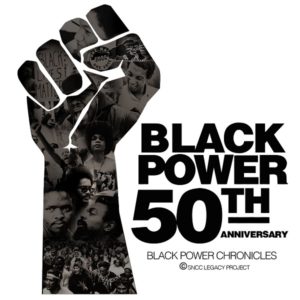 The National Network on Cuba recognizes and salutes the 50th Anniversary of the concept of “Black Power” as uttered on June 16, 1966 in Greenwood, Mississippi. This cry answered the racist terror campaign and brutal attempted sniper assassination of James Meredith on the second day of his voting rights walk from Memphis to Jackson, Miss. So when the Student Nonviolent Coordinating Committee took up the March Against Fear outside of Greenwood, the number of marchers swelled until by June 28, 1966 an estimated 15,000 participants arrived in Jackson – the largest civil rights march to date in Mississippi. (click image for c-span interview with Kwame Toure)
The National Network on Cuba recognizes and salutes the 50th Anniversary of the concept of “Black Power” as uttered on June 16, 1966 in Greenwood, Mississippi. This cry answered the racist terror campaign and brutal attempted sniper assassination of James Meredith on the second day of his voting rights walk from Memphis to Jackson, Miss. So when the Student Nonviolent Coordinating Committee took up the March Against Fear outside of Greenwood, the number of marchers swelled until by June 28, 1966 an estimated 15,000 participants arrived in Jackson – the largest civil rights march to date in Mississippi. (click image for c-span interview with Kwame Toure)
It was Kwame Ture, (Stokely Carmichael) who had been recently elected Chairman of SNCC, and Mukasa Dada (Willie Ricks) then SNCC front organizer for the march who are both credited with re-echoing this concept that can be traced back to Fredrick Douglass and to Martin Delanie. From 1966-69 the Black Power concept spread like wildfire, fueling the struggle against racism and repression in cities across the U.S. Kwame Ture explained that “Black Power was not anti-white it was pro-black, whites who were progressive should organize their own community and fight white racism.” https://www.youtube.com/watch?v=PBIs166T1-Y
Black Power was the title of Richard Wright’s 1954 book on Dr. Kwame Nkrumah and the struggle for independence in Ghana. In the June 10. Zimbabwe Herald, Obie Egbuna of the Zimbabwe-Cuba Friendship Association quotes Nkrumah: “Black Power is part of the world rebellion of the oppressed against the oppressor, of the exploited against the exploiter. It is linked with the Pan-African struggle for unity on the African continent, and with all those who strive to establish a socialist society.”
In January of 1966 Cuba hosted anti-imperialist revolutionaries and liberation movement from around the world in a meeting that created the OSPAAAL – Organization of Solidarity with the Peoples of Africa, Asia and Latin America. African Americans did not travel from the U.S. to participate in the Tricontinental Conference, but the documents, organizations and publications that emerged from the meeting demonstrated pronounced solidarity with the black freedom struggle.
By 1967 the mutual admiration between the Cuban Revolution and the Civil Rights/Black Power struggle in the U.S., provided the context for Cuba to invite Kwame Ture and SNCC to attend the Organization of Latin American Solidarity Conference in Havana.
Black Power like the Cuban Revolution went on to inspire a whole new generation of Black Youths and others to revolution. So it is no accident that ten years later in 1976 when the South African Black Consciousness youths rose up in SOWETO, led by Steve Biko, their battle cry was ‘black power.’
Today, 50 years later the African communities in the U.S. are again rising up. The battle cry is still Black Power. Cuba for them remains a model and a friend.
NNOC co-chairs:
Banbose Shango
Cheryl LaBash
Alicia Jrapko
Greg Klave
Nalda Vigezzi


